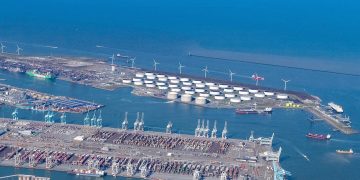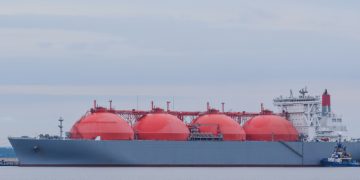Less than two months after the maritime community celebrated the World Mental Health Day putting suicide of seafarers in the spotlight, a new Yale study came to confirm concerns of suicidal thoughts among the world’s seafarers, at a time when the Seafarers Happiness Index reveals an increase to crews happiness globally.
Commissioned by the ITF Seafarers’ Trust charity, a Yale survey to 1,572 seafarers identified potentially dangerous levels of depression, anxiety and suicide risk among crews.
For the purposes of the study, seafarers with suicidal ideation were defined those responding “several days,” “more than half the days,” or “nearly every day” to the question,
“Over the past 2 weeks, how often have you been bothered by thoughts that you would be better off dead, or of hurting yourself in some way?”
The results indicated that, over the past two weeks prior to taking the survey:
- 25% of respondents had scores suggesting depression (significantly higher than other working and general populations).
- 17% were defined as seafarers with anxiety.
- 20% had suicidal ideation, either several days (12.5%), more than half the days (5%) or nearly every day (2%) over the two weeks.
The key factors of seafarer depression, anxiety, and suicidal ideation included work environmental factors (non-caring company culture, violence at work), job satisfaction, and self-rated health (the strongest predictor of anxiety and depression).
The most significant factor associated with workplace violence was seafarer region of origin, with seafarers from the Philippines and Eastern Europe most likely to report exposures to workplace violence.
In addition, depression, anxiety, and suicidal ideation were associated with increased likelihood of injury and illness while working onboard, as well as of planning to leave work in the next 6 months.
- Lack of adequate training
- An uncaring work environment
- Exposure to violence or threats of violence
- Co-existing medical conditions (including cardiac disease and sleep disorders)
- Low job satisfaction
- Ill heath
Meanwhile, new research conducted by Cardiff University came to validate a recent-onset anxiety and depression among serving seafarers, stressing however that it is difficult to establish the extent of the problem of mental health issues and suicide among seafarers.
Nevertheless, there was evidence that in some roles, seafarers may be particularly prone to emotional exhaustion and ‘burnout’.
Ship-related factors affecting them to feel down were too much work, lack of taking shore leave and poor food, while crew-related factors were having a ‘bossy captain’, experiencing discrimination, being blamed for things and falling out with superiors and other colleagues.
More importantly, tiredness and boredom were identified by the majority of seafarers as an underlying cause of shipboard depression.
Meanwhile, the study showed employers do not recognize the importance of welfare onboard to the same extent as charities and stakeholders, with 55% of employer respondents stating they had not introduced any practices to address seafarers’ mental health in the last 10 years.
Seafarers Free internet access, terms and conditions of work, relationships onboard, physical health, as well as accommodation and recreation, were identified as the most significant contributions that could be made by employers to the improvement of mental health.
- Isolation-loneliness
- lack of shore leave
- fear of criminalization
- fear of job loss
- separation from family
On the other side, the Seafarers Happiness Index for Q3 2019 revealed an unexpected increase of overall seafarer happiness to 6.59 from 6.27/10 in the previous quarter.
In a historic Seafarers Happiness Index of positive results, crew interaction unexpectedly marked a significant progress, but the issue of contact with family was the only downward trend recorded, to 6.82 from 6.88. Other key concerns from respondents were workload and increasing pressure to perform perfectly, as well as food and wages.
Happiness by ship type
From the “big three” ship type categories -including bulk carriers, container ships and tankers- the seafarers on bulk carriers surprisingly were the most satisfied, something which has not been the usual pattern. The bulk crews reported an average general happiness level of 6.53, with container ships at 6.16 and tankers 6.14, respectively.
Happiness by rank
As has been the norm, the deck department appears to be more satisfied than the engine department.
There was a surprising leap in happiness for Masters, breaking through the 7 mark.
Mates’ happiness with 5.79 saw an increase but was still by far the lowest in the deck department.
Both happiness of Chief Engineers and Second Engineers increased but there was again a gap between them, accounting for 6.92 and 6.17/10 respectively.
Happiness by age
The youngest age range 16-25 proved to be the happiest, with a very high 7.9/10 reported.
Key takeaways
While data is limited and crew wellness can vary depending on many different or inter-related conditions, the overall landscape identifies seafarers as more prone to mental health issues, compared to other working populations.
Taking into consideration figures released in the three studies, isolation and poor social interaction, lack of shore leave, criminalization, violence by crew mates and low job satisfaction seem to be at the top of concerns for seafarers’ wellness globally.
Needless to note, all the three studies emphasized the need for implementation of mental health policies and management strategies, as well as employee assistance programs. Companies should firstly recognize the importance of good mental health for crews and then reconfigure their efforts by promoting bonding activities onboard to boost interaction, and by providing more opportunities for good communication.
Poor leadership and culture within an organization, excessive pressure, bullying and harassment have the potential to negatively impact on workers’ mental health
… Duncan Spencer, Head of Advice and Practice at IOSH.



























































